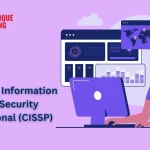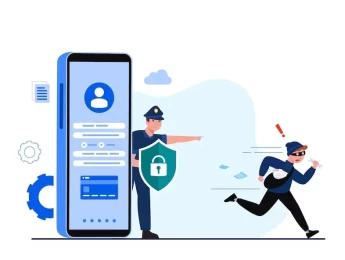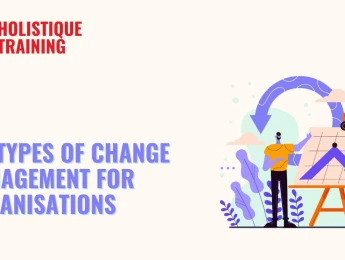Introduction
In a world that demands adaptability and constant growth, professional development is a necessity rather than a luxury. Whether you are aiming to upskill, shift your career direction, or strengthen your expertise in a specific field, short certificate courses have emerged as a practical and effective solution. This blog explores the concept of short certification courses, how they work, and why they are gaining popularity among professionals across industries. We’ll also highlight ten compelling benefits of enrolling in these courses and provide examples of valuable programs offered by Holistique Training , available online, in-person, or in a classroom setting. Finally, we’ll take a glimpse into the promising future of short certification courses, cementing their role in the evolving landscape of education and professional growth.
What is a Short Certification Course?
Short certification courses are concise, focused educational programs designed to impart specific skills or knowledge within a limited time frame. Unlike traditional degrees, which require years of study, these programs can often be completed in a matter of weeks or months. The curriculum is tailored to address industry demands, offering practical insights and real-world applications.
Typically, these courses culminate in a certificate that validates your expertise in a specialised area, making them highly valuable for professionals seeking recognition or advancement. Whether you are a recent graduate looking to build your credentials or an experienced professional aiming to stay ahead in a competitive job market, short certification courses provide the flexibility and relevance needed to achieve your goals.
How Do Short Certification Courses Work?
Short certification courses are structured to deliver maximum impact in a limited timeframe, making them ideal for professionals seeking targeted skill development. These courses are typically concise, focused on a specific subject area, and designed to be accessible regardless of your current level of expertise. Here’s a detailed exploration of how they work:
1. Flexible Learning Formats
Short certification courses are offered in a variety of learning formats , catering to different preferences and schedules. Whether you choose online, in-person, or hybrid learning, the structure is designed to accommodate working professionals and students alike. Online courses, in particular, provide the flexibility to learn at your own pace, while in-person sessions often include hands-on workshops for practical applications.
Many courses are modular, allowing you to complete one section at a time and revisit content as needed. This bite-sized approach makes it easier to absorb complex material without feeling overwhelmed. In addition, platforms often provide access to recordings, allowing learners to review sessions for better retention.
2. Defined Objectives and Curriculum
Short certification courses are goal-oriented, with clearly defined learning objectives. Unlike traditional academic programs, which cover broad theoretical knowledge, these courses focus on practical, actionable skills. For instance, a project management certification might include modules on Agile methodologies, risk management, and scheduling techniques, providing tools you can apply immediately in a professional setting.
The curriculum is typically curated by industry experts or academic professionals, ensuring the content is relevant, up-to-date, and aligned with market demands. This targeted approach ensures you leave the course equipped with knowledge and credentials that employers value.
3. Assessment and Certification
To verify learning outcomes, short certification courses often include assessments such as quizzes, assignments, case studies, or final exams. These assessments are designed to test your understanding of the material and your ability to apply it in real-world scenarios. For example, a digital marketing course might require participants to develop a mock marketing campaign using tools learned during the course.
Upon successful completion of the course and passing the assessments, participants receive a certification. This credential serves as proof of your expertise and can be added to your resume, LinkedIn profile, or professional portfolio.
4. Interactive Learning Opportunities
Short certification courses prioritise engagement, often incorporating interactive elements to enhance the learning experience. This may include live discussions with instructors, peer-to-peer collaborations, and hands-on projects. For example, a cybersecurity course might feature simulated hacking scenarios, allowing participants to practice identifying and mitigating vulnerabilities.
Some courses also integrate gamification techniques, such as leaderboards and achievement badges, to keep learners motivated and invested in their progress. These interactive components not only make the learning process enjoyable but also ensure deeper understanding and retention.
5. Access to Expert Mentorship
A key feature of short certification courses is the opportunity to learn directly from industry professionals or academic experts. Instructors often bring years of practical experience, offering insights that go beyond textbook knowledge. This mentorship can help clarify complex topics, provide personalised feedback, and offer career guidance related to the course subject.
In some cases, instructors also facilitate networking opportunities, connecting participants with industry contacts or sharing insights into emerging trends. This added layer of support can be invaluable as you work to apply your newfound skills in a professional context.
6. Adaptable for All Levels of Experience
Short certification courses are designed to be inclusive, catering to individuals at various stages of their careers. Whether you are a beginner seeking foundational knowledge or an experienced professional looking to specialise in a niche area, these courses offer a suitable pathway.
Many programs provide pre-assessment tools to help participants determine their existing skill level and recommend the most appropriate starting point. This ensures that learners derive maximum value, regardless of their prior expertise.
7. Networking and Collaboration
Beyond skill acquisition, short certification courses create opportunities for participants to build professional networks. Group projects, discussion forums, and virtual communities foster collaboration among peers from diverse backgrounds. These interactions can lead to long-term professional relationships, mentorships, or even job opportunities.
Some courses also connect participants with alumni networks or host exclusive events where you can engage with industry leaders. This added dimension makes short certification courses a valuable resource for personal and career growth.
By integrating flexible schedules, practical assessments, expert mentorship, and interactive learning, short certification courses provide an efficient and effective way to gain industry-relevant skills. This structure ensures that learners can achieve meaningful outcomes without committing to long-term education, making these courses a preferred choice for modern professionals.
Aspect | Short Certification Courses | Long Certification Courses |
Duration | Typically weeks to a few months. | Often 1-4 years or more. |
Cost | Lower tuition fees and expenses. | Higher financial investment required. |
Flexibility | Frequently online, self-paced, or part-time options. | Fixed schedules, fewer flexible learning formats. |
Focus | Specific, targeted skills for immediate application. | Comprehensive knowledge across broader disciplines. |
Career Impact | Quick upskilling and faster career advancement. | Deeper expertise for long-term professional growth. |
10 Benefits of Enrolling in a Short Certification Course
Short certification courses offer a range of advantages that make them a valuable investment for personal and professional growth. From boosting career prospects to fostering lifelong learning, these programs provide tangible benefits that cater to the diverse needs of learners and working professionals alike. Let’s explore the key reasons why enrolling in a short certification course can be a game-changer for your career and skill set.
1. Enhances Employability
Employers consistently seek candidates who bring value to their organisation. A short certification course showcases your dedication to professional development and signals to hiring managers that you are proactive in acquiring relevant skills. For industries undergoing rapid technological change, certifications can bridge gaps in expertise, ensuring your qualifications align with market needs.
Furthermore, many employers prioritise candidates with certifications over those with solely academic qualifications. The practical nature of these courses demonstrates that you possess hands-on experience, making you a versatile addition to any team. Adding certifications to your resume not only enhances its credibility but also increases your chances of landing interviews and progressing in your career.
2. Quick Skill Acquisition
Short certification courses are designed with efficiency in mind, condensing essential knowledge into manageable modules. This targeted approach allows learners to focus exclusively on mastering the most relevant aspects of a subject. For instance, rather than spending years studying a broader discipline, you can develop expertise in specific tools, methodologies, or frameworks within weeks.
This rapid skill acquisition is particularly valuable for professionals adapting to changing roles or industries. For example, if you're transitioning to project management, a short course can quickly equip you with fundamental planning and execution skills, ensuring you are ready to take on new challenges without prolonged downtime.
3. Cost-Effective Learning
Investing in a traditional degree can be financially prohibitive, often involving tuition fees, accommodation costs, and years of income loss during full-time study. Short certification courses, by contrast, are budget-friendly options that deliver substantial value. For a fraction of the cost of a degree, you can gain specialised knowledge and credentials that are immediately applicable.
Additionally, many organisations are willing to cover the cost of certification courses for their employees as part of professional development programs. This makes short courses an excellent way to upgrade your skills without bearing the financial burden entirely on your own. Even if you self-fund, the return on investment is typically high due to the career advancements these certifications can facilitate.
4. Flexibility
Balancing work, family, and personal commitments can make pursuing long-term education challenging. Short certification courses offer flexible learning formats, enabling you to study at your own pace and convenience. Whether you prefer evening classes, weekend workshops, or online modules, there’s an option to suit your schedule.
Flexibility extends beyond timing. Many courses allow learners to revisit materials, participate in discussions asynchronously, or even pause their studies if unforeseen circumstances arise. This adaptability ensures that pursuing a certification doesn’t come at the expense of your other responsibilities.
5. Industry-Relevant Content
Short certification courses are meticulously curated to address real-world needs. Industry professionals and subject matter experts often design the curriculum, ensuring learners gain actionable insights and techniques. Unlike traditional academic programs that may lag behind current trends, these courses remain dynamic, updating content regularly to reflect technological advancements and market shifts.
For instance, a certification in digital marketing would include the latest tools like AI-driven analytics, ensuring participants can apply modern strategies immediately. This relevance makes these courses highly attractive to employers, who value professionals equipped with up-to-date knowledge and practical skills.
6. Networking Opportunities
Short certification courses are not just about learning; they are platforms for building meaningful professional connections. Whether online or in person, these programs bring together individuals with shared interests and goals, fostering an environment conducive to networking. Collaborating on assignments, engaging in group discussions, and interacting with instructors often lead to valuable professional relationships.
Networking within these courses can open doors to mentorship opportunities, partnerships, or even job referrals. Many participants find that the connections they make during the course are as beneficial as the skills they acquire, creating a supportive community that extends beyond the classroom.
7. Career Advancement
Certifications can be the catalyst for promotions, salary increases, or entirely new roles. They provide tangible proof of your expertise, making it easier for employers to justify advancing you to higher positions. For individuals in competitive fields, certifications often serve as differentiators, setting you apart from equally qualified peers.
In addition, certifications can unlock career pathways that were previously out of reach. For example, a project management certification could position you for leadership roles, while a cybersecurity credential might open doors to lucrative opportunities in the IT sector. Employers recognise the value of these credentials, often linking them directly to enhanced career trajectories.
8. Personalised Learning
Short certification courses allow learners to focus on areas that align closely with their personal and professional aspirations. Instead of wading through a broad curriculum, you can select niche topics that directly address your needs. This specificity ensures you maximise your time and effort, acquiring skills that are immediately applicable to your career goals.
Moreover, many short courses offer customisable learning pathways, allowing participants to choose elective modules or tailor assignments to reflect their interests. This level of personalisation enhances engagement and ensures the learning experience feels relevant and rewarding.
9. Boosts Confidence
Achieving a certification validates your expertise and reinforces your belief in your abilities. This confidence extends to your workplace, where you can approach challenges with the assurance that you have the skills and knowledge to succeed. The recognition that comes with earning a certification further bolsters self-esteem, motivating you to tackle more ambitious goals.
For professionals re-entering the workforce or transitioning into new industries, certifications act as confidence boosters. They demonstrate that you have taken proactive steps to update your skillset, reassuring potential employers and colleagues of your competence.
10. Lifelong Learning Culture
Participating in short certification courses fosters a mindset of continuous improvement. In an era where industries evolve rapidly, the ability to learn and adapt is crucial. These courses encourage professionals to stay curious, keep their skills sharp, and embrace innovation, ensuring long-term career resilience.
Over time, the habit of lifelong learning becomes second nature, positioning you as a forward-thinking professional. Employers value individuals who demonstrate a commitment to growth, viewing them as assets capable of driving organisational success in dynamic environments.
Short Certificate Courses to Consider
At Holistique Training , we offer a range of high-quality short certification courses tailored to meet diverse professional needs. These programs are available online, in-person, or in classroom formats, ensuring accessibility and flexibility for all learners.
Essentials of the Oil and Gas Industry
The oil and gas industry remains a cornerstone of the global economy, requiring skilled professionals to navigate its complexities. This course provides an overview of the sector, covering topics like exploration, production, refining, and distribution. Participants also explore industry-specific challenges such as environmental compliance, risk management, and technological innovation.
With a focus on real-world applications, the program is designed for engineers, analysts, and business leaders who want to gain insights into the sector's dynamics. By the end of the course, participants are equipped to contribute to the industry’s growth while addressing its evolving challenges, including sustainability and energy transition.
2. Product Management & Marketing for B2B
Product management is a cornerstone of business success, particularly in the business-to-business (B2B) sector. This course provides an in-depth understanding of the product life cycle, from ideation and development to market entry and scaling. Participants learn how to align product features with client needs, develop pricing strategies, and ensure effective market positioning.
The course also delves into marketing essentials, including crafting compelling value propositions, managing stakeholder relationships, and leveraging digital tools for outreach. By equipping learners with both technical and strategic skills, this program prepares them for roles such as product managers, marketing specialists, or business consultants in industries like tech, manufacturing, and professional services.
3. Certified Information Systems Security Professional (CISSP)
In an era where cyber threats are a growing concern, cybersecurity expertise is in high demand. The CISSP course is a globally recognised certification for professionals aiming to specialise in information security. Participants gain a comprehensive understanding of cybersecurity principles, including risk management, access control, network security, and cryptography.
Through hands-on training and case studies, learners develop the skills to design, implement, and manage secure IT systems. This course is particularly suited for IT managers, security analysts, and anyone involved in safeguarding organisational data. Graduates of the CISSP course often find opportunities in industries such as finance, healthcare, and technology, where cybersecurity remains a top priority.
4. Fundamentals of Project Management
Project management is a universal skill that transcends industries, and this course offers a solid foundation for beginners and experienced professionals alike. Participants learn how to initiate, plan, execute, monitor, and close projects effectively, using tools like Gantt charts, Work Breakdown Structures (WBS), and Agile methodologies.
The course also emphasises soft skills, such as communication, problem-solving, and team leadership, ensuring participants can manage both the technical and human aspects of projects. Whether you’re pursuing a career in construction, IT, marketing, or healthcare, this certification equips you with the knowledge and confidence to manage projects of varying complexities.
Why Choose Holistique Training for These Courses?
At Holistique Training , we prioritise flexibility and accessibility to meet diverse learner needs. Whether you prefer the convenience of online learning, the engagement of in-person sessions, or the structure of classroom formats, we have you covered.
Our courses are led by industry experts who bring real-world experience to the classroom, ensuring that learners receive practical knowledge they can immediately apply. Additionally, our programs include networking opportunities, access to exclusive resources, and post-certification support, making your learning journey seamless and rewarding.
By enrolling in one of these courses, you’re not just acquiring skills—you’re investing in a brighter, more prosperous career future.
The Future of Short Certificate Courses
Short certification courses are poised to play an increasingly pivotal role in education and professional development. As industries evolve and the demand for specialised knowledge grows, these programs offer a flexible and accessible solution for skill enhancement. Here’s an in-depth look at the trends and factors shaping the future of short certificate courses:
1. Integration of Advanced Technologies
The future of short certificate courses will be heavily influenced by advancements in educational technology. Virtual reality (VR), augmented reality (AR), and artificial intelligence (AI) are expected to revolutionise the learning experience. Imagine taking a cybersecurity course where you can practice defending a simulated network against cyberattacks in a VR environment, or engaging with AI-powered tutors that provide personalised feedback and study plans.
Furthermore, adaptive learning platforms will enable courses to be tailored to individual progress and needs, ensuring that learners grasp concepts at their own pace. These technological innovations will make short certificate courses more interactive, engaging, and effective.
2. Increased Demand for Microcredentials
As the job market becomes more competitive, professionals are looking for ways to stand out. Microcredentials—digital certifications that validate specific skills—are gaining popularity and will likely be a key component of future short certification courses. These credentials are often stackable, meaning you can combine them to achieve broader qualifications or certifications in a particular field.
Employers are increasingly valuing microcredentials as evidence of continuous learning and specialised expertise. This trend aligns with the rise of gig and freelance economies, where professionals often need to showcase skills quickly and effectively to secure projects or contracts.
3. Global Accessibility and Inclusivity
The future will see short certificate courses becoming even more accessible to learners worldwide. Online platforms will continue to break geographical barriers, allowing individuals from remote or underserved regions to access high-quality education. Courses will also be offered in multiple languages, broadening their reach and inclusivity.
Additionally, more institutions are likely to offer scholarships, subsidies, or pay-as-you-learn models , ensuring affordability for a diverse range of learners. By democratising access to education, short certificate courses will contribute significantly to reducing global skill gaps.
4. Alignment with Industry Needs
As industries evolve, short certificate courses will become more agile, adapting quickly to meet the demands of emerging fields. For example, as sustainability and green technology gain prominence, expect courses focused on renewable energy, carbon management, and sustainable business practices. Similarly, as artificial intelligence and machine learning continue to grow, there will be a surge in certifications tailored to these domains.
Collaboration between educational institutions and industry leaders will ensure that courses remain relevant and practical. This alignment will help professionals stay ahead of the curve in their respective fields, making them more competitive in the job market.
5. Lifelong Learning as a Norm
The concept of lifelong learning is becoming increasingly vital in a world where industries and technologies are in constant flux. Short certificate courses will play a central role in fostering this culture by providing bite-sized, modular education opportunities that professionals can pursue throughout their careers.
Rather than committing to a single long-term program, learners will be able to continuously update their skills and knowledge by enrolling in short, focused courses. This approach not only keeps professionals relevant in their fields but also supports career changes and pivots into new industries.
6. Emphasis on Soft Skills and Leadership Development
While technical skills remain crucial, there is a growing recognition of the importance of soft skills and leadership abilities. The future of short certificate courses will likely include a greater focus on areas like emotional intelligence , communication, conflict resolution, and decision-making.
These skills are particularly valuable as automation and AI take over routine tasks, leaving humans to focus on roles that require creativity, empathy, and strategic thinking. In fact, a LinkedIn study reveals that 92% of talent professionals consider soft skills to be equally or even more critical than hard skills. Short courses designed to enhance these competencies will help professionals excel in leadership positions and adapt to changing workplace dynamics.
Table: Top Soft Skills in 2024
Soft Skill | Why It’s Needed |
Communication | Builds strong relationships and ensures clear messaging. |
Adaptability | Essential for thriving in rapidly changing environments. |
Problem-Solving | Enables effective solutions to complex challenges. |
Emotional Intelligence | Enhances teamwork and leadership through empathy. |
Time Management | Increases productivity by prioritising tasks efficiently. |
7. Corporate Partnerships and Custom Training
Many organisations are already partnering with educational providers to create bespoke certification programs for their employees. This trend is expected to grow, with companies investing more in employee development to maintain competitiveness. Custom short certificate courses tailored to organisational needs will ensure that teams acquire the specific skills necessary to meet business objectives.
For example, a tech company might collaborate with a training institution to develop a course on advanced coding languages for its developers, while a retail company might focus on courses related to customer analytics and experience management.
8. Sustainability and Eco-Friendly Practices in Education
A study by SOS UK showed that a whopping 85% of students believe schools and colleges should actively contribute to environmental sustainability. The growing emphasis on sustainability will also influence the way short certificate courses are delivered. Virtual learning platforms will reduce the need for travel and physical materials, minimising their environmental footprint. Additionally, courses focused on sustainability and green business practices will prepare professionals to lead in environmentally conscious industries.
In short, the future of short certificate courses is bright, driven by technological innovation, evolving industry demands, and a global push toward accessible education. These courses will continue to empower individuals and organisations to achieve their goals, providing a dynamic and practical approach to skill development.
Whether you're seeking to advance in your current role, pivot to a new industry, or stay ahead of emerging trends, short certificate courses will remain an invaluable tool for achieving professional success.
Conclusion
Short certification courses are a game-changer for anyone seeking to enhance their skills, advance their careers, or explore new opportunities. Their flexibility, relevance, and cost-effectiveness make them an invaluable tool in today’s fast-paced world. At Holistique Training , we are committed to empowering learners through high-quality programs that cater to various professional needs.
Whether you are a seasoned professional or just starting your career journey, a short certification course could be the stepping stone to your next big achievement. Explore the possibilities, embrace lifelong learning, and unlock your potential. Visit our website to learn more!

























